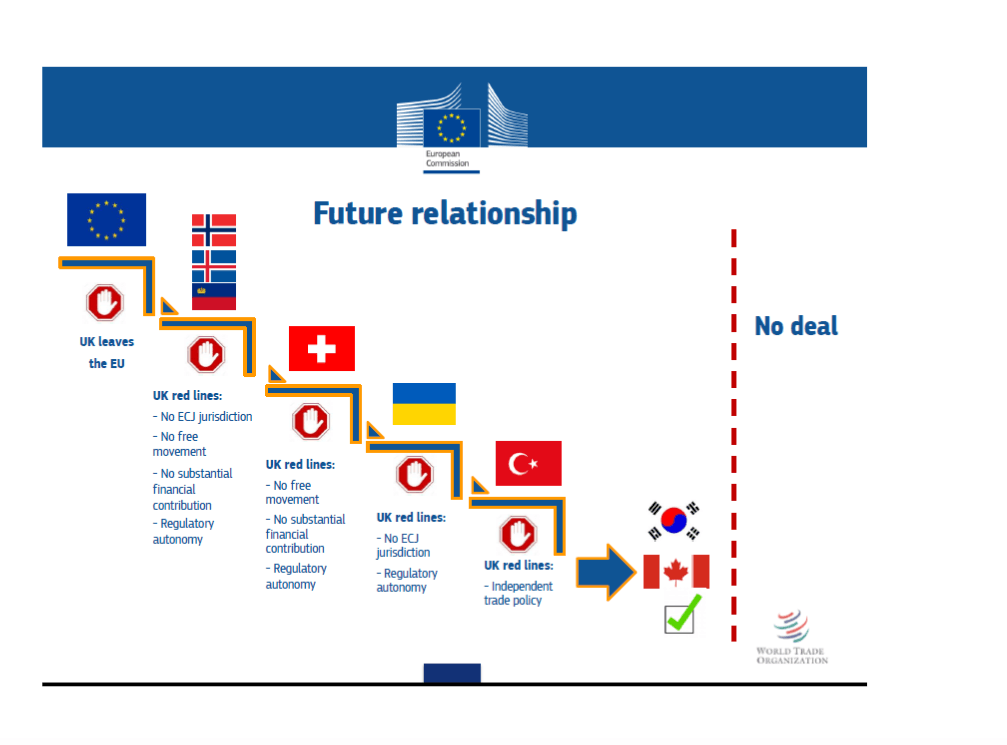The European Commission published its recommendation on the draft negotiating directives for the second phase of the discussions of the UK leaving the European Union on Wednesday 20 December. It stresses that the work must be completed on all withdrawal issues, including those not yet addressed in the first phase.
Transition period
The European Commission reiterated that several principles should be respected during the transition period, such as a “level playing field”, that “preserving the integrity of the single market (SM) excludes participation based on a sector-by-sector approach”, that there could be no cherry-picking on the four freedoms of the SM, and the competences of the European Court of Justice (ECJ).
Any transitional agreement should cover the whole of the EU acquis, including matters related to Euratom, as if the UK were still a member state. Any new legislation that will come into force during that period should also apply to the UK. The UK will have to comply to the current measures in the area of freedom, justice and security, which it opted into, and also to any changes that will be decided, as long as the transition period lasts.
The UK is expected to stay in the Customs Union and the Single Market during the transition period, according to the European Commission.
The recommendation states that:
“Where it is in the interest of the Union, the Union may consider whether and how arrangements can be agreed that would maintain the effects of the agreements as regards the United Kingdom during the transition period; the United Kingdom should however no longer participate in any bodies set up by those agreements.”
During the transition period, the competences of the EU institutions should continue to be preserved (ECJ, agencies, bodies). However, the UK would not be allowed to participate in or nominate or elect members of the EU institutions. It would not be allowed to participate in the decision-making process or the governance of EU bodies, offices and agencies.
However, the European Commission suggests that the UK should be allowed to be invited to meetings of standing committees or Commission expert working groups, without having voting rights. The withdrawal agreement should “define the precise conditions and the clear framework under which such exceptional attendance should be allowed.”
Island of Ireland
On Ireland and the Northern Irish border, the recommendation states that “the work on detailed arrangements required to give effect to the principles and commitments set out in the Joint Report should continue in a distinct strand, some of which would be translated in the Withdrawal Agreement, others in the framework for the future relationship.”
Next steps: In line with the European Council's guidelines of 15 December, the General Affairs Council (Art 50) will adopt these additional negotiating directives on transitional arrangements in January 2018.
